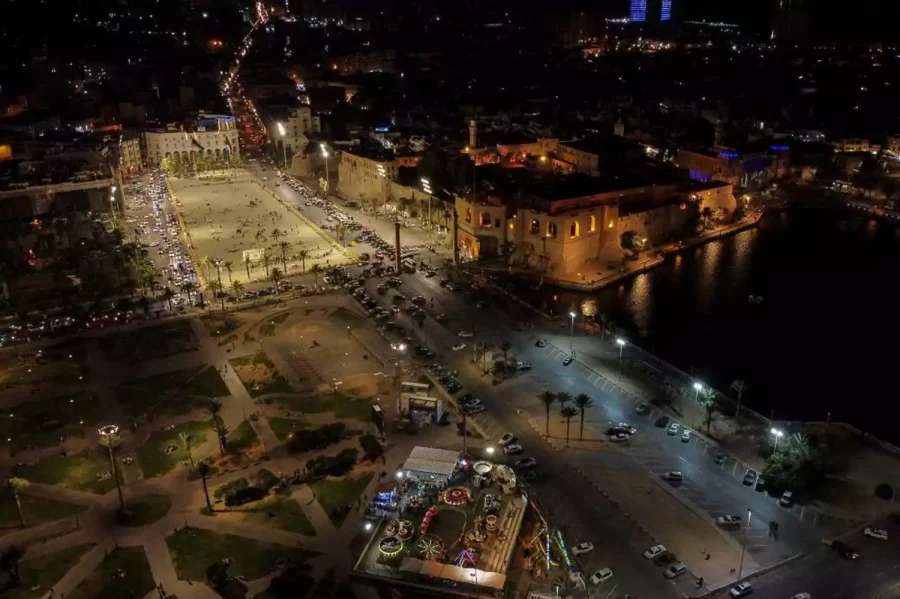It’s midnight just before the weekend. Traffic snarls the corniche in Tripoli, where improved electricity service has brought renewed
energy to Libya’s capital after years of conflict and power cuts. Chronic electricity shortages had shaped the daily lives of Libyans since the fall of MoamerKadhafi in a NATO-backed 2011 uprising.
A decade of stop-start fighting between rival armed groups followed, adding combat damage and looting to an already dilapidated grid in the North African country. Power “outages were a disaster for my business”, said Hanan al-Miladi, a 43-year-old baker who sells pastries online for weddings and other celebrations.
After 42 years in power, Kadhafi left behind obsolete infrastructure, an economy largely dependent on oil, and an underskilled workforce. To protect the network and prevent overloads, the General Electricity Company of Libya (Gecol) resorted to widespread power cuts over the past 10 years during the peak consumption periods of summer and winter.
Until last year, outages could last 10 or even 20 hours, turning the city’s streets dark and leaving residents sweltering in summer temperatures above 40 degrees Celsius (104 Fahrenheit) without air conditioning. The most “unbearable thing was never knowing when the power would go out or for how many hours”, said Miladi.
But with new management at Gecol since last year, along with a relatively stable security situation, Libyans now receive a markedly improved electricity supply. Prime Minister AbdelhamidDbeibah, who heads a United Nations-backed government in Tripoli and is the Gecol chairman, in July 2022 sacked the previous manager.
He also made sure the power company’s new boss saw through projects, including a plan for maintenance of damaged infrastructure and tight control of funds to curb corruption. Some foreign companies have now even revived projects they had suspended in Libya.
“The situation has improved, and customers notice it,” said 34-year-old butcher MoaedZayani, who also sells frozen products. To avoid countless sleepless nights, Libyans did adapt to the power outages.—AP









